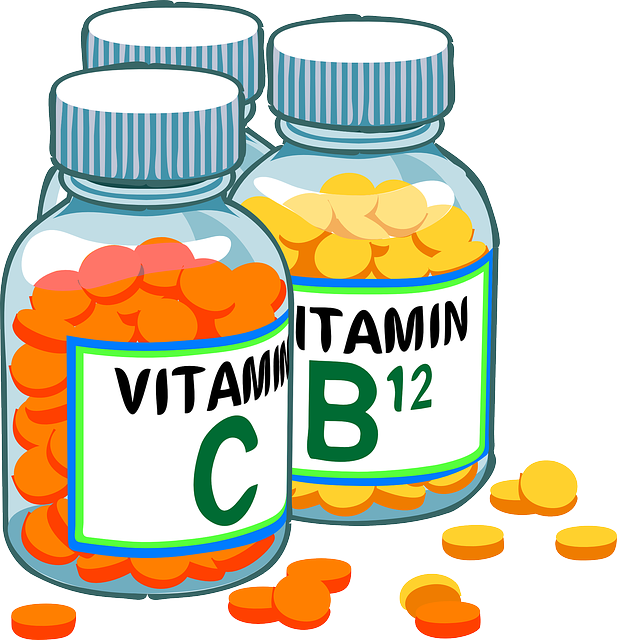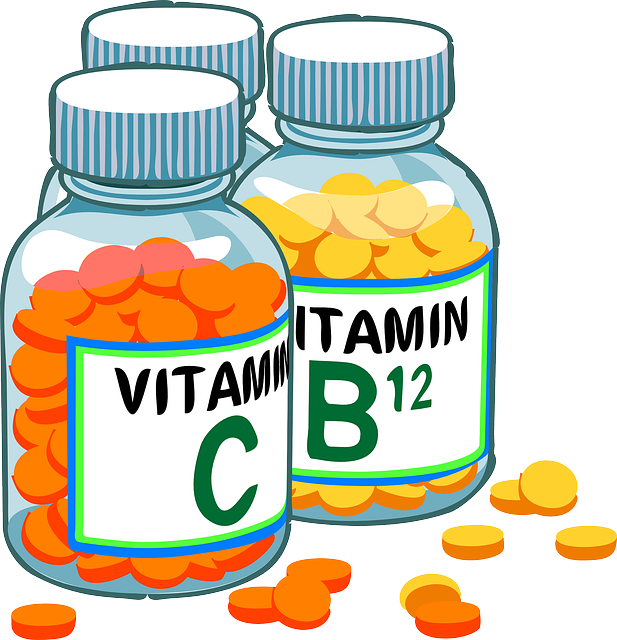Translation services are indispensable for accurate and compliant communication of UK public health reports, ensuring critical information reaches diverse populations effectively. These services must meet strict standards regarding format, content, language, culture, and terminology to adhere to Department of Health and Social Care (DHSC) directives. Professional translators with medical expertise navigate complex jargon and cultural nuances, providing accessible translations that maintain legal compliance and improve public health outcomes. Integrating translation into workflows requires best practices like clear communication, standard protocols, and rigorous reviews by experts, leveraging technology while preserving human oversight. Continuous Quality Assurance is vital for consistency, accuracy, and adherence to UK guidelines, making translation services indispensable for global health initiatives.
“In ensuring public health safety and compliance, accurate translation of reports is paramount in the UK. With a complex regulatory landscape, navigating language barriers can be challenging. This comprehensive guide explores the critical role of translation services in meeting UK standards for public health documentation. From understanding regulatory requirements to addressing technical translation challenges, we delve into best practices, legal implications, and successful case studies. Discover how integrating professional translation ensures consistency, accuracy, and effective communication across diverse public health reports.”
- Understanding UK Regulations for Public Health Documentation
- The Role of Accurate Translation in Healthcare Compliance
- Challenges of Translating Technical Reports: A Public Health Perspective
- Best Practices for Integrating Translation Services into Public Health Workflows
- Ensuring Consistency and Accuracy Across Translated Documents
- Legal Implications of Inaccurate Translations in the UK Healthcare Sector
- Case Studies: Successful Translation Projects for Public Health Reports
- Choosing the Right Language Service Provider for Public Health Data
- Future Trends in Translation for UK's Public Health Documentation
- Continuous Quality Assurance for Translated Public Health Materials
Understanding UK Regulations for Public Health Documentation

The UK has stringent regulations regarding public health documentation, which must be accurately translated and interpreted to ensure compliance. When translating public health reports for use within the UK, it’s crucial to understand that these documents are subject to specific legal requirements and guidelines set by governing bodies like the Department of Health and Social Care (DHSC). The DHSC provides clear directives on the format, content, and language standards for such reports to maintain consistency and accuracy in information dissemination.
Translation services for UK public health reports must be tailored to meet these stringent standards. This involves not only translating the text but also ensuring cultural relevance and compliance with local terminology and phraseology. Professional translation companies specializing in this field employ linguists who are well-versed in both public health terminology and UK regulatory requirements, guaranteeing that translated documents remain legally sound and effective in communicating critical public health information.
The Role of Accurate Translation in Healthcare Compliance

Accurate translation plays a pivotal role in ensuring UK compliance with public health reports, especially as healthcare regulations demand precise and immediate communication. When dealing with sensitive medical information, even minor errors in translation can have severe consequences. Therefore, relying on professional translation services is essential for UK organizations working with foreign language public health reports. These services employ skilled linguists who not only understand medical terminology but also adhere to cultural nuances, ensuring the translated content accurately reflects the original intent.
Translation services must be robust enough to handle complex healthcare documentation, including technical jargon and specialized terms. They should employ rigorous quality assurance processes to guarantee accuracy, consistency, and cultural adaptability. By utilizing these services, UK entities can meet legal requirements, facilitate effective communication with international partners, and ultimately improve public health outcomes by providing clear, accessible information in the native languages of their target audiences.
Challenges of Translating Technical Reports: A Public Health Perspective

Translating public health reports into multiple languages is a complex task, especially when ensuring accuracy and compliance with UK regulations. Technical reports, by their nature, contain specialized terminology and jargon that can be challenging to convey effectively in another language. This is particularly true for public health documents, where clear communication is critical for understanding and implementing guidelines.
The process involves not just word-for-word translation but also cultural adaptation to ensure the report resonates with diverse audiences. For instance, a term considered common in one language might not have an exact equivalent or carry the same weight in another, requiring translators to be adept at finding appropriate alternatives. Moreover, staying up-to-date with evolving public health standards and terminology in various languages is essential to produce reliable translations that align with UK public health policies. Translation services specialized in this domain play a vital role in navigating these challenges, ensuring that critical public health information is accessible and understandable across linguistic barriers.
Best Practices for Integrating Translation Services into Public Health Workflows

When integrating translation services into public health workflows, it’s essential to prioritize accuracy, timeliness, and cultural sensitivity. Best practices include establishing clear communication channels with translators, ensuring they possess medical expertise or access to subject-matter specialists for complex terminology. Standardizing translation protocols and utilizing qualified professionals can enhance consistency and quality. Regular reviews of translated reports, involving both linguistic experts and public health specialists, are crucial to catch any errors or misinterpretations early in the process.
Furthermore, leveraging technology such as machine translation tools can expedite the initial draft generation but should be followed up with human review. This hybrid approach balances speed with precision, ensuring UK compliance for public health reports. Effective project management involves setting realistic deadlines, allocating sufficient resources, and fostering an environment that encourages collaboration between healthcare professionals and translators. By adhering to these best practices, public health agencies can efficiently manage translated reports, ultimately improving communication and care for diverse populations within the UK.
Ensuring Consistency and Accuracy Across Translated Documents

Ensuring consistency and accuracy in translated public health reports is paramount for effective communication and compliance with UK regulations. When translating such sensitive documents, it’s crucial to engage professional translation services that understand the nuances of both medical terminology and local legal requirements. Skilled translators must not only convey the exact meaning but also adapt content to be culturally appropriate and easily understandable by the target audience.
Translation quality assurance processes are essential to maintain integrity. This includes rigorous reviews by subject-matter experts, especially when dealing with technical subjects like public health. Using advanced translation software and memory databases can help standardise terms and ensure consistent terminology across all documents. Regular feedback loops and client approval mechanisms further guarantee that translated reports meet the highest standards of accuracy and quality, thereby facilitating seamless compliance with UK public health regulations.
Legal Implications of Inaccurate Translations in the UK Healthcare Sector

Inaccurate translations in the UK healthcare sector can have severe legal implications, especially when dealing with public health reports. The accuracy and clarity of translated documents are critical to avoid potential risks and consequences for all parties involved—from healthcare providers to patients. Mistranslations may lead to misdiagnosis, inappropriate treatment, or even a delay in essential medical care, which could be considered negligence under UK law.
The General Data Protection Regulation (GDPR) emphasizes data privacy and security, demanding that translated health records adhere to strict standards. Furthermore, the NHS and other healthcare institutions often require certified translation services for official documents, ensuring reliability and accuracy. Using unprofessional or unqualified translators can compromise the integrity of these reports, leading to legal disputes, liability issues, and damage to reputational standing. Translation services for UK public health reports must, therefore, prioritize precision and adhere to legal frameworks governing healthcare information to mitigate such risks.
Case Studies: Successful Translation Projects for Public Health Reports

Successful case studies highlight the importance of high-quality translation services for UK public health reports. One notable example involves a collaborative effort between the NHS and a leading language service provider to translate and localize critical COVID-19 guidelines for diverse ethnic communities. This project ensured that essential public health information reached hard-to-reach populations, fostering better engagement and compliance with recommended safety measures.
The translation process involved not just linguistic expertise but also cultural sensitivity. Localized versions of the reports incorporated idiomatic expressions and cultural nuances relevant to each community, enhancing understanding and acceptance. This initiative proved successful in improving health outcomes and strengthening community trust in public health messaging. Similar projects have demonstrated the critical role that professional translation services play in supporting UK public health initiatives at a national level.
Choosing the Right Language Service Provider for Public Health Data

When it comes to translating public health reports for the UK, selecting a language service provider that understands the nuances of medical terminology and cultural context is paramount. Not all translation services are created equal; specialized providers with expertise in the healthcare sector can ensure accuracy and consistency in conveying critical public health information. Look for companies that employ medically trained translators and have experience handling sensitive data to maintain the integrity of the reports.
Choosing a provider equipped to handle the unique requirements of UK public health data will result in more reliable translations. These professionals should be adept at localizing content, adapting it to fit cultural norms while preserving the original meaning and intent. With translation services tailored to this specific domain, you can rest assured that your public health reports will be handled with both precision and sensitivity, aligning seamlessly with UK healthcare standards and regulations.
Future Trends in Translation for UK's Public Health Documentation

As technology evolves, so do the demands placed on public health documentation. Future trends in translation will play a pivotal role in ensuring accessibility and accuracy for UK’s public health reports. One key trend is the integration of advanced AI tools, such as machine learning algorithms, which can significantly speed up the translation process while maintaining high levels of precision. This becomes increasingly vital as the UK interacts with international partners on global health issues.
Additionally, there will be a growing emphasis on specialized medical translation services tailored to public health documentation. With complex terminology and nuanced contexts, these reports require translators who not only master the language but also possess expertise in healthcare fields. Translation service providers are expected to invest in training their staff to keep up with the latest medical advancements, ensuring that all translations remain current and reliable.
Continuous Quality Assurance for Translated Public Health Materials

Maintaining accuracy and consistency in translated public health reports is paramount for ensuring UK compliance. Continuous Quality Assurance (CQA) plays a pivotal role in this process, acting as a robust quality control mechanism. CQA involves rigorous reviewing and editing of translations by expert linguists who scrutinize not only grammatical correctness but also cultural appropriateness and conceptual fidelity to the original content. This multi-stage process ensures that translated reports accurately convey critical public health information, adhering to UK guidelines and regulations.
Translation services for UK Public Health Reports must incorporate CQA as a fundamental practice. By doing so, they guarantee that the translated materials effectively communicate essential public health messages, bridging linguistic and cultural gaps. This commitment to quality not only enhances understanding among diverse populations but also reinforces the integrity of public health initiatives, ultimately contributing to better outcomes for all UK residents.
In ensuring UK compliance with translated public health reports, navigating a blend of regulatory adherence and linguistic precision is paramount. By embracing best practices, leveraging advanced translation technologies, and prioritizing consistency and accuracy, healthcare organizations can effectively communicate critical public health information across diverse languages. Choosing the right language service provider specializing in this domain is essential to avoid legal implications and ensure translated documents serve as reliable testaments to UK public health standards globally. As the field evolves, continuous quality assurance remains crucial for maintaining the integrity of communication within this vital sector. Translation services for UK Public Health Reports must adapt to future trends while remaining steadfast in their commitment to accuracy and compliance.
